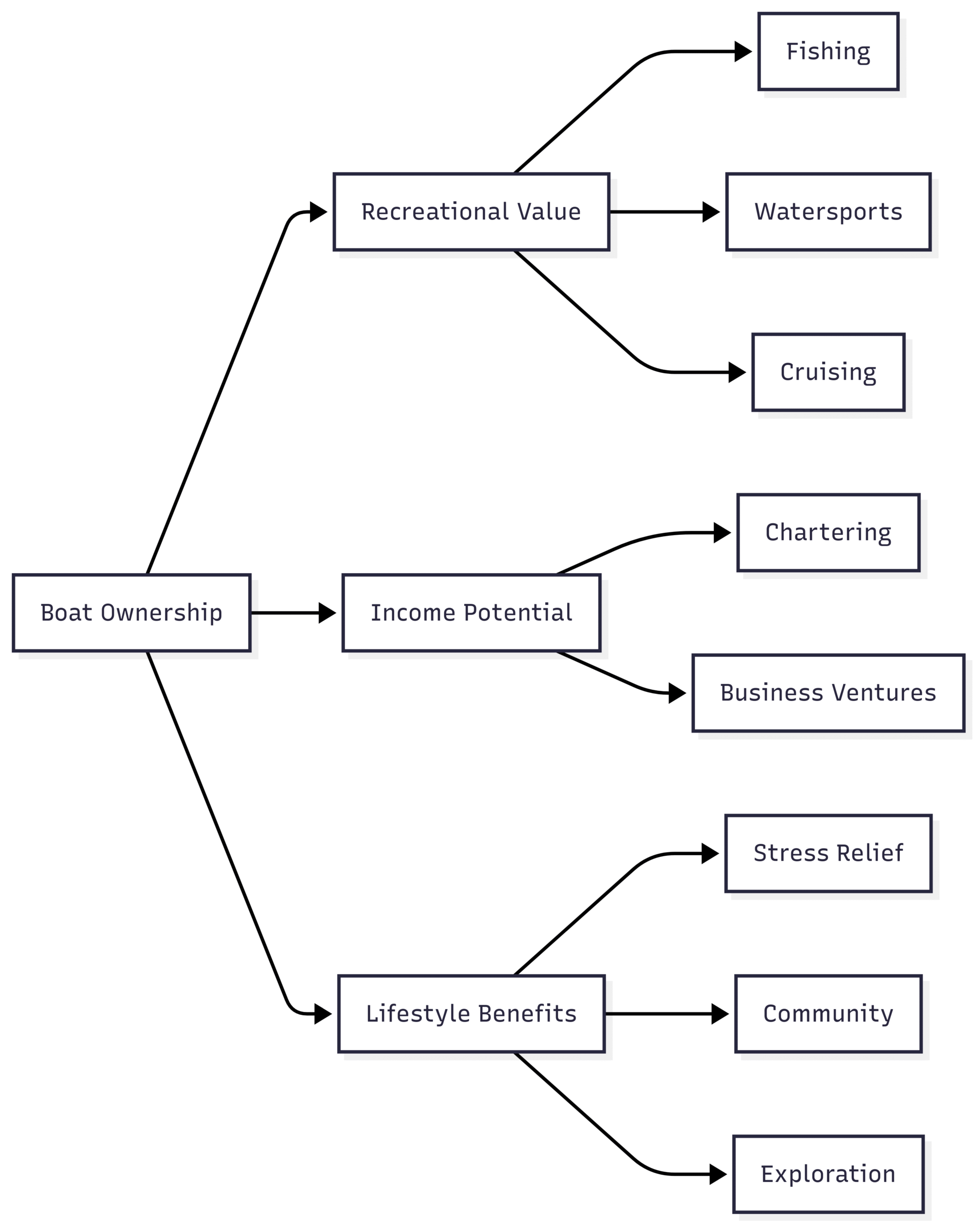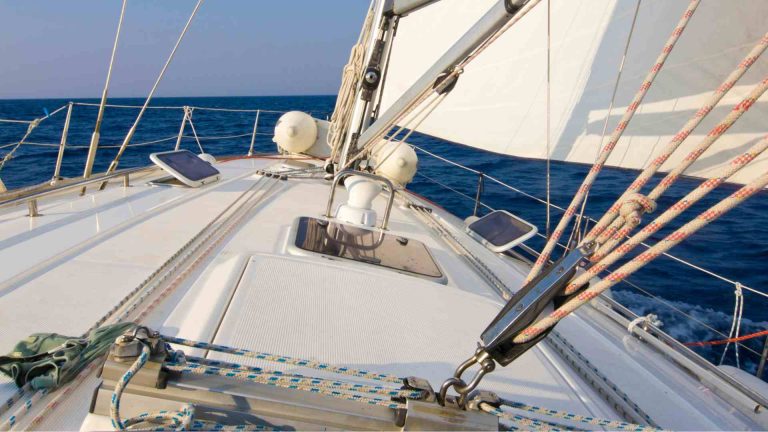6 Reasons Why a Boat is a Good Investment
Discover why a boat is a good investment with unique experiences, income potential, and lifestyle benefits. Learn costs, maintenance, and more.
Boats are often seen as luxury purchases, but they can also be a compelling investment for those who value unique experiences, potential income, and an enhanced lifestyle. While not traditional assets like stocks or real estate, boats offer a blend of recreational, emotional, and even financial returns when approached thoughtfully. This article explores six key reasons why a boat can be a good investment, delving into the lifestyle benefits, financial considerations, and practical steps to maximize value. We’ll also address the challenges, costs, and alternatives to ensure you make an informed decision.
1. Unforgettable Experiences and Lasting Memories
Boating is synonymous with creating cherished memories. Whether it’s a family fishing trip, a sunset cruise with friends, or a solo escape into nature, boats provide a unique platform for bonding and relaxation. The water fosters a sense of freedom and adventure, allowing you to disconnect from daily stress and immerse yourself in the present.
- Family and Social Bonding: Boats bring people together. Hosting barbecues on deck, teaching kids to water ski, or exploring hidden coves strengthens relationships. The shared experiences—watching dolphins leap or anchoring at a secluded beach—create stories that last a lifetime.
- Stress Relief and Mental Health: Studies show that spending time near water reduces stress and boosts mental well-being. The rhythmic sound of waves and the open horizon provide a calming escape, making boating a powerful antidote to the pressures of modern life.
- Community Connection: Boating communities are vibrant and welcoming. Joining a yacht club or attending boating events introduces you to like-minded enthusiasts, fostering friendships and a sense of belonging.
For example, a family might invest in a 30-foot cuddy cabin boat, which offers space for overnight trips and watersports. This versatility ensures countless weekends of memory-making, from teaching kids to navigate to hosting friends for a day on the lake.
2. Potential for Income Generation
While boats are primarily recreational, they can also generate income, offsetting ownership costs and, in some cases, turning a profit. Here are some ways to monetize a boat:
- Chartering: Renting out your boat during peak seasons can yield significant returns. For instance, a well-maintained 40-foot yacht in a popular coastal area might command $1,000-$3,000 per day for charters. Platforms like GetMyBoat or Boatsetter make it easy to connect with renters.
- Business Ventures: Boats can support small businesses, such as fishing charters, guided tours, or sunset cruises. A fishing charter operator, for example, could charge $500-$1,500 per trip, depending on the region and duration.
- Event Hosting: Luxury yachts can serve as unique venues for corporate events, weddings, or private parties, with rental fees ranging from $2,000 to $10,000 per event for high-end vessels.
To illustrate, consider a 50-foot yacht purchased for $500,000. If chartered out for 20 days a year at $2,000 per day, it generates $40,000 annually, covering maintenance and loan payments while providing extra income. The key is to operate in high-demand areas and maintain the boat meticulously to attract clients.
3. Value Retention and Resale Potential
While boats generally depreciate, strategic purchasing and maintenance can minimize losses and, in some cases, lead to value retention or appreciation.
- Depreciation Trends: New boats typically lose 10-15% of their value in the first year, 20-30% by year five, and 30-40% by year ten. However, well-maintained used boats or premium brands (e.g., Boston Whaler, Grady-White) often hold value better due to demand.
- Buying Smart: Purchasing a pre-owned boat or a “project boat” (if you have repair skills) reduces initial costs and depreciation risk. For example, a used 25-foot center console boat might cost $30,000 compared to $80,000 new, offering more equity upfront.
- Maintenance Matters: Regular servicing, proper storage, and cosmetic care (e.g., polishing the hull, replacing worn upholstery) preserve resale value. A boat with low engine hours and a clean service record can fetch 70-80% of its purchase price after five years.
Table: Depreciation of a $100,000 Boat Over Time
| Year | Estimated Value | Depreciation (%) |
|---|---|---|
| 1 | $85,000 | 15% |
| 5 | $70,000 | 30% |
| 10 | $60,000 | 40% |
Rare or vintage boats, such as classic wooden Chris-Craft models, may even appreciate if restored properly, appealing to collectors. Market demand also plays a role—coastal regions with active boating communities often have stronger resale markets.
4. Unique Recreational Value
Boats offer unparalleled recreational opportunities that cater to diverse interests. Unlike other vehicles, they provide access to environments that are otherwise inaccessible, enhancing your leisure time.
- Versatile Activities: Boats support fishing, waterskiing, wakeboarding, tubing, snorkeling, and more. A 22-foot bowrider, for instance, can handle both high-energy watersports and relaxed cruising.
- Exploration and Adventure: Boating opens up new destinations, from remote islands to hidden lakes. A 35-foot cruiser can take you island-hopping in the Bahamas or exploring coastal waterways, offering experiences land-based vacations can’t match.
- Physical and Mental Benefits: Preparing a boat for a trip—loading supplies, cleaning, or launching—provides light exercise, while water-based activities like swimming or paddleboarding boost fitness.
For example, a pontoon boat, priced around $40,000-$60,000, offers stability and space for large groups, making it ideal for family outings or social gatherings. Its versatility ensures it meets multiple recreational needs, maximizing your investment’s value.
5. Business Use and Networking Opportunities
Boats can double as innovative business tools, offering a unique setting for client meetings or corporate events. Hosting a meeting on a yacht creates a relaxed atmosphere, fostering stronger relationships and memorable impressions.
- Client Entertainment: A 60-foot yacht can serve as a private venue for business dinners or team-building events, setting you apart from competitors. Clients are more likely to remember a deal closed over cocktails on the water than in a boardroom.
- Tax Benefits: If used for business (e.g., chartering or client hosting), boats may qualify for tax deductions, including fuel, maintenance, and docking fees. Consult a tax professional to ensure compliance, but these deductions can offset ownership costs.
For instance, a business owner might purchase a 45-foot motor yacht for $400,000 and use it for 10 client events annually. The unique setting could lead to contracts worth far more than the boat’s cost, making it a strategic investment.
6. Lifestyle Enhancement and Freedom
Boating transforms your lifestyle by offering freedom, flexibility, and a deeper connection to nature. It’s an investment in your well-being and personal fulfillment.
- Freedom to Explore: A boat grants access to diverse waterways—lakes, rivers, or oceans—on your own schedule. A 28-foot cruiser, for example, can take you to remote destinations without the constraints of commercial travel.
- Skill Development: Boating teaches navigation, maintenance, and safety skills, boosting confidence and competence. These skills enhance the ownership experience, making every trip a learning opportunity.
- Work-Life Balance: The tranquility of the water provides a respite from daily demands, promoting relaxation and mindfulness. Whether it’s a solo fishing trip or a family adventure, boating recalibrates your perspective.
Chart: Benefits of Boat Ownership

Key Considerations Before Investing
While boats offer significant benefits, they come with challenges that require careful planning.
Initial and Ongoing Costs
Boats involve substantial upfront and recurring expenses. Here’s a breakdown of typical costs for a 30-foot center console boat (priced around $100,000 new):
- Purchase Price: $30,000 (used) to $150,000 (new).
- Down Payment: 10-20% ($3,000-$30,000).
- Monthly Loan Payment: $500-$1,200 (based on a 15-year loan at 5-7% interest).
- Annual Costs:
- Insurance: $1,000-$3,000
- Maintenance: $1,500-$5,000
- Fuel: $1,000-$3,000 (depending on usage)
- Storage/Docking: $2,000-$10,000
- Accessories: $500-$2,000 (e.g., life jackets, water toys)
Table: Annual Ownership Costs for a $100,000 Boat
| Expense | Low-End Estimate | High-End Estimate |
|---|---|---|
| Insurance | $1,000 | $3,000 |
| Maintenance | $1,500 | $5,000 |
| Fuel | $1,000 | $3,000 |
| Storage/Docking | $2,000 | $10,000 |
| Total | $5,500 | $21,000 |
Maintenance and Care
Boats require diligent upkeep to maintain value and performance. Neglecting maintenance can lead to costly repairs, such as engine rebuilds ($5,000-$20,000). Key tasks include:
- Regular cleaning to prevent corrosion or mold.
- Annual engine servicing and winterization.
- Proper storage (e.g., dry storage or covered slips) to protect against weather damage.
Depreciation and Resale Challenges
Boats depreciate faster than real estate or stocks, and resale can be challenging in oversaturated markets. Factors affecting resale include:
- Engine Hours: High hours (e.g., over 1,000) reduce value due to wear.
- Condition: Rust, torn upholstery, or outdated electronics deter buyers.
- Market Demand: Popular models in high-demand areas sell faster.
To mitigate depreciation, buy used, maintain diligently, and target versatile models like bowriders or pontoons, which appeal to a broad market.
Alternatives to Boat Ownership
If the costs or commitment of ownership feel daunting, consider these alternatives:
- Renting: Rent a boat for a day ($200-$1,000) to enjoy the water without long-term costs.
- Chartering: Book a crewed charter for vacations, with prices starting at $500/day.
- Boat Clubs: Join a yacht club or boat-sharing program for access to a fleet for an annual fee ($2,000-$10,000).
- Co-Ownership: Split costs with a friend or family member, reducing financial strain.
These options provide flexibility and access to boating without the full burden of ownership.
Financing Your Boat
For those ready to invest, financing can make ownership accessible. Companies like Trident Funding offer boat loans for vessels from $25,000 to $2 million, with terms up to 15 years and rates of 5-7%. A typical loan for a $100,000 boat might require a 20% down payment ($20,000) and monthly payments of $790 over 15 years at 6% interest.
To estimate payments, use an online boat loan calculator. Ensure your budget accounts for ongoing costs to avoid financial strain.
Is a Boat a Good Investment for You?
The answer depends on your goals and circumstances. Financially, boats are rarely as lucrative as stocks or real estate, but they excel as investments in lifestyle, happiness, and experiences. If you can afford the initial and ongoing costs, value outdoor recreation, and are prepared for maintenance, a boat can be a rewarding investment. For those seeking income, chartering or business use can offset expenses and enhance returns.
Boating offers intangible benefits that are hard to quantify—sunset cruises, family adventures, and the thrill of the open water. As one boater put it, “The memories I’ve made on my boat are worth more than any stock portfolio.” If these align with your priorities, a boat could be the perfect investment.
For those ready to dive in, contact dealers like Boaters World Marine Centers for expert guidance or explore financing options with Trident Funding to start your boating journey.
Happy Boating!
Share 6 Reasons Why a Boat is a Good Investment with your friends and leave a comment below with your thoughts.
Read Why Should You Buy a Boat from a Certified Dealership? until we meet in the next article.






